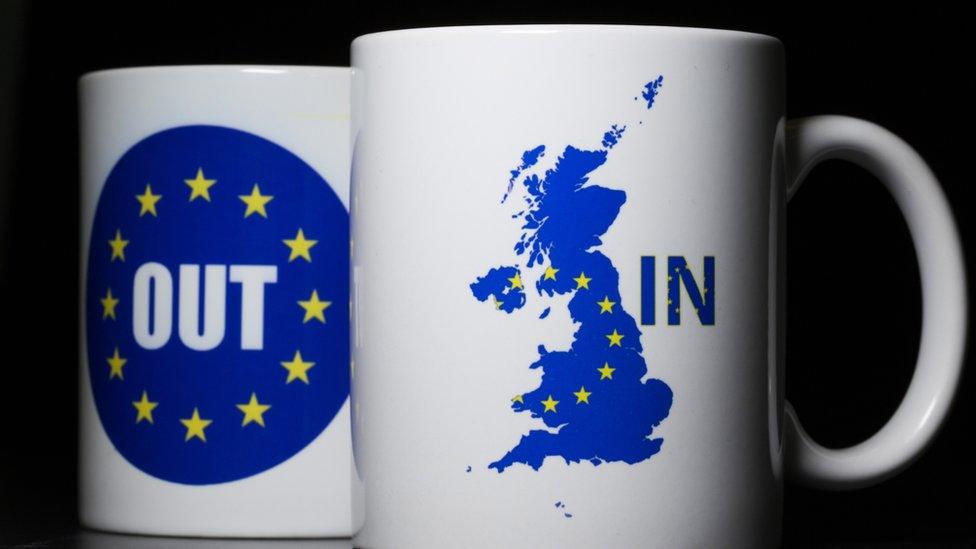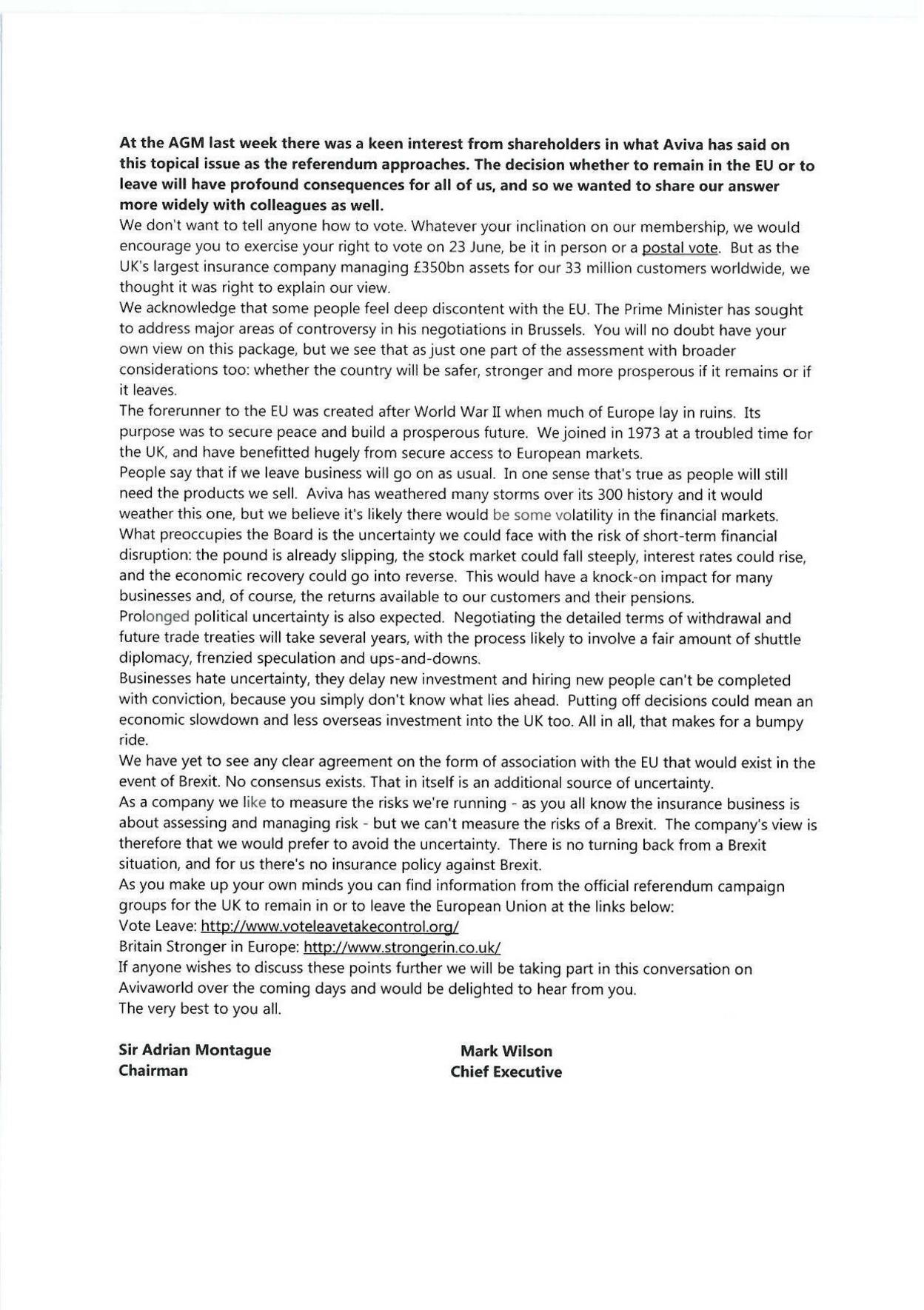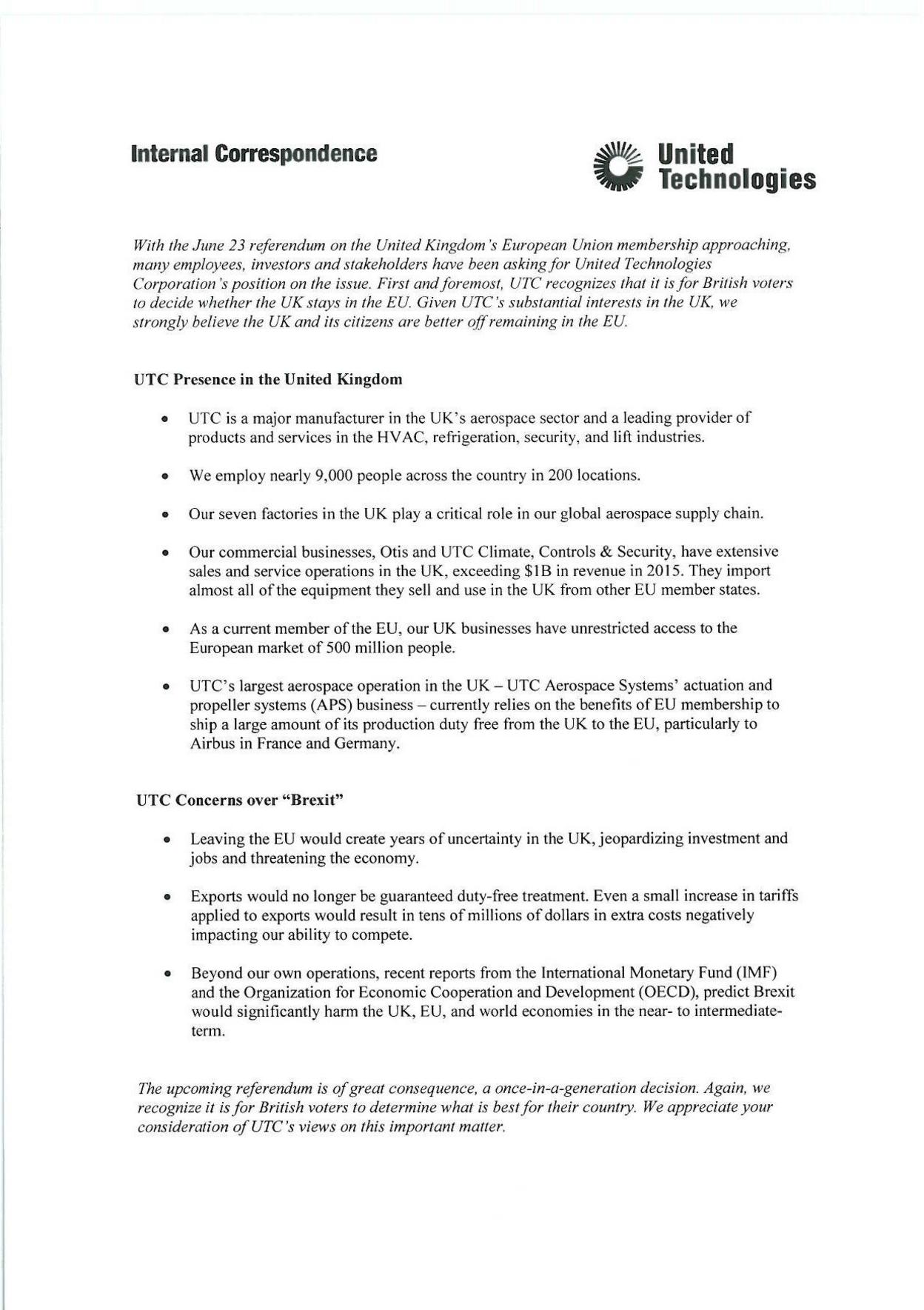Mind your own business: Should firms speak out on EU?
- Published
- comments

Who do you trust to give you a straight answer on the effects of the UK leaving the European Union?
The blizzard of claims and counter-claims by politicians can seem bewildering, so what faith should voters put in the views of their employer?
The BBC has today seen three examples of big employers intervening, by warning staff of the dangers of leaving the EU.
While all of them stressed it is up to individual voters to decide for themselves, they all made it clear on which side the company's bread was buttered. One company's chairman takes the opposite view.
Microsoft told , externalits employees: "As a business that is very committed to this country, our view is that the UK should remain in the EU."
Aviva went further, warning that "the pound is already slipping, the stock market could fall steeply, interest rates could rise and the economy could go into reverse".

And United Technologies - the US manufacturing company behind engine maker Pratt and Whitney and Otis lifts - had the strongest warning. An internal memo to staff warns that leaving the EU "would create years of uncertainty, jeopardising investment and jobs".
In the Leave camp, Tim Martin, chairman of pub chain Wetherspoons, has already penned a long pro-leave article in the company magazine which finished with the line: "Continuing to give away power to the unelected elite in Brussels is a dangerous and unpredictable path."

Is it appropriate for company bosses to get involved in this way?
Yes - According to the CBI, "Responsible business leaders should give their employees the choice to hear what impact a Brexit would have on company growth, their jobs and their local community"
No - Vote Leave said the implicit threat to jobs amounted to intimidation.
John Longworth, chairman of the Vote Leave Business Council, said: "I've never seen such an establishment stitch-up. It's highly regrettable to see big corporate bosses plotting to gang up on their staff and lecture them on how to vote."
As I've said before in this blog, the lessons from the Scottish Referendum on these tactics are inconclusive.
Did the warning from major employers such as RBS and Lloyds (both partly owned by the government) that they would move their HQs to London scare voters into voting to stay, or did it antagonise floaters and end up backfiring?
After all, the referendum is by secret ballot and employers will never know how their staff voted.
There is one common denominator. In both cases, the leavers feel outgunned on the campaign trail. Vote Leave points out that the government's decision to spend £9m of public money on a single pro-EU leaflet is more than the £7m it is allowed by the Electoral Commission to spend over the entire campaign.
That is not to say that Vote Leave is struggling for money - it has plenty of rich friends of its own.
Donations to groups favouring Brexit currently stand at £8.2m - 10% more that the £7.5m raised by the Remainers.
Vote Leave say that is not enough of an equaliser when you are up against "the establishment".
Has your employer contacted you? Let us know...
- Published11 May 2016
- Published27 April 2016
- Published25 April 2016
- Published21 April 2016
- Published14 April 2016
- Published12 April 2016
- Published11 April 2016